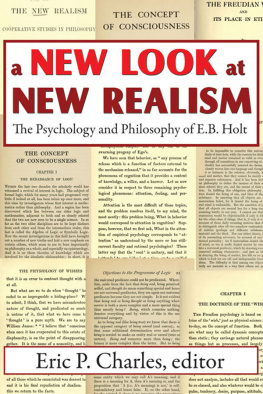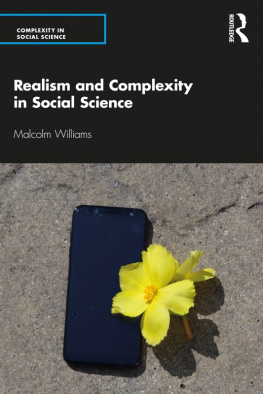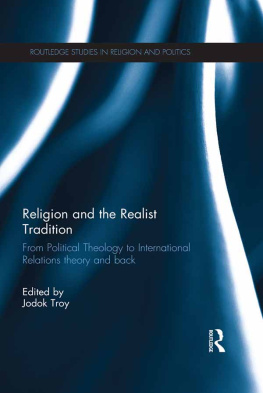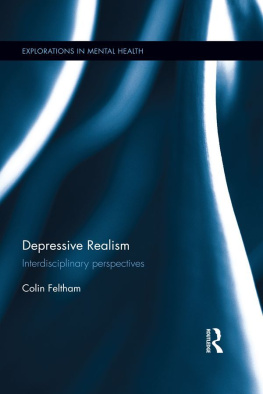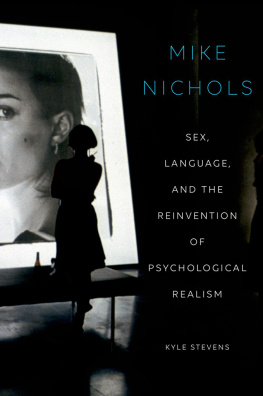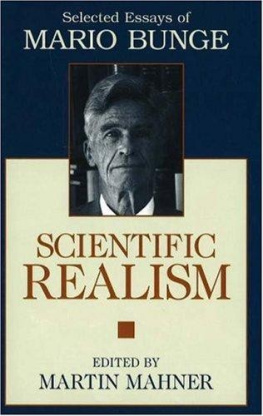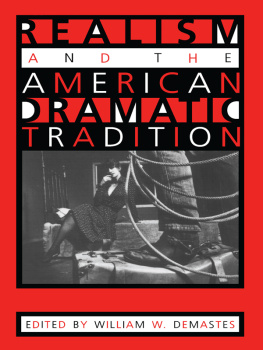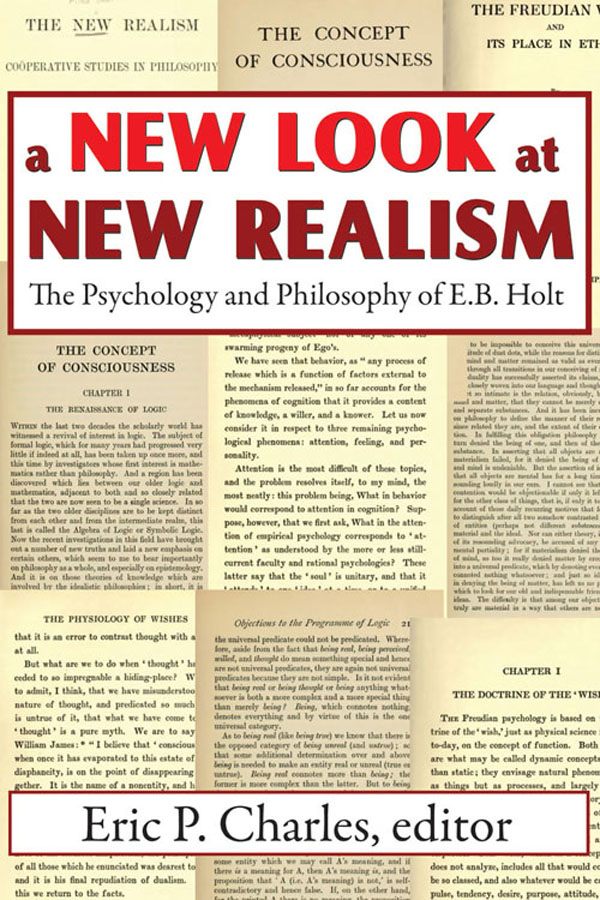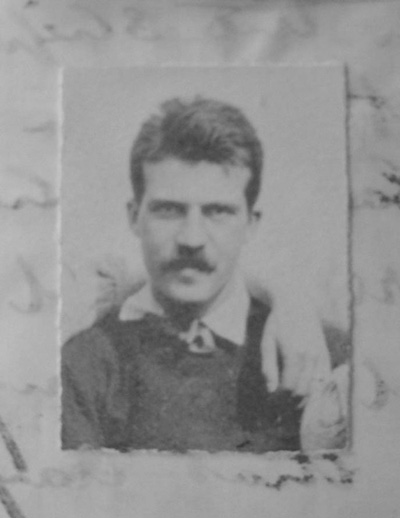
Edwin Bissell Holt, 1905
Attached to a Letter to Alice James
a NEW LOOK at
NEW REALISM
The Psychology and
Philosophy of E.B. Holt
Eric P. Charles, editor
Transaction Publishers
New Brunswick (U.S.A.) and London (U.K.)
Copyright 2011 by Transaction Publishers, New Brunswick, New Jersey.
All rights reserved under International and Pan-American Copyright Conventions. No part of this book may be reproduced or transmitted in any form or by any means, electronic or mechanical, including photocopy, recording, or any information storage and retrieval system, without prior permission in writing from the publisher. All inquiries should be addressed to Transaction Publishers, RutgersThe State University of New Jersey, 35 Berrue Circle, Piscataway, New Jersey 08854-8042. www.transactionpub.com
This book is printed on acid-free paper that meets the American National Standard for Permanence of Paper for Printed Library Materials.
Library of Congress Catalog Number: 2011010268
ISBN: 978-1-4128-4242-6
Printed in the United States of America
Library of Congress Cataloging-in-Publication Data
A new look at new realism : the psychology and philosophy of E.B. Holt / Eric P. Charles, editor.
p. cm.
Includes bibliographical references and index.
ISBN 978-1-4128-4242-6
1. Holt, Edwin B. (Edwin Bissell), 1873-1946. 2. Realism. 3. Psychology and philosophy. I. Charles, Eric P.
BF41.N49 2011
149.2dc22
2011010268
Dedication
To Christi, Merryn, and Renna, who have gone without the
attention they deserve to make this possible.
To Drs. Candland, Pereira, Shank, Coss, Rivera, and Thompson,
who have given much attention to me over the years.
To Drs. James, Holt, and Gibson, whose work should be better
understood.
Contents
Foreword
This book is important as it brings to our contemporary readers a tradition of psychological thought that has been lost over the last century. Somehow, within the unimaginative presentation of psychologys history as supposedly a fight between the behaviorists and mentalists, the third alternative, the New Realism, has been lost. Writing psychologys history into a story of dramatic fightssimilar to accounts of medieval duelsobscures the complexity of the ideas which are thereby assigned (or usually mislabeled) as belonging to one or the other warring camps, as well as the complexity of those ideas left behind. In reality, thinkers in bothor better allthe camps were active thinkers who wanted to make sense of basic issues of how the world is organized.
Psychologists in the beginning of the twentieth century were as varied in their worldviews as one might find psychologists today. Some of them refused the axiom of the soulor mindas a starting point in psychological analysis. Others insisted upon it. Some (J. B. Watson) brought the focus on behavior to its extremesmuch to the dismay of others (E. B. Holt) who nevertheless insisted on the axiom of the primacy of the study of behavior. Yet both would be considered behaviorists in our ordinary classification of traditions within psychology, a label that conceals the reality of their thought. Emphasizing the primacy of behavior can be nuanced in many ways and presented in any version of behaviorism. The intensity of such presentation also variesthere is a big difference between a scientific credo put forth with missionary fervorin contrast with a presentation where the affordances of ideas are carefully considered, and where suggested solutions are doubtableeven by their authors themselves.
The key to serious science is the readiness to interact with people who stand on opposite axiomatic bases to ones own. So, as the reader of this book will be able to see, the conceptual dispute between the introspectionist E. B. Titchener and the behaviorist Edwin B. Holt could proceed in the context of amiable mutual relationsyet with full disagreement of their scientific positions. Ideas matter, but they are not ideologies that create animosity out of differences of positions. The danger for any science is to polarize into mutually incompatible and militant ideologies that spend their resources in fighting with each other rather than finding new ways of making sense of the world.
Myths about science are dangerous. They can redirect attention from the central issuetheoretical breakthroughsto peripheral dramatic events in and around the lives of scientists. Psychologys habitual treatment of its history in terms of schools and systems that one encounters in undergraduate textbooks is one of the first misrepresentations of what science is to the lay public. Science is not a gladiator fight where the public opinionor even governmental granting agenciesdetermines who lives or dies. Rather, it retains its historical credo of artisan-like freedom of inquiry of various ideas and their testing in relation to ever-effervescent realities. Scientists become somewhat masochistic in their pleasure of being wrong most of the timein the hope that they somehow arrive at some reasonably adequate solution in that pilgrimage toward knowledge. They also need to accept that most likely their efforts are forgottenhistories of sciences are usually written for social regulation of ideas in the field. Many productive start-ups are habitually overlooked as the caravan of each new generation of scientists moves on.
E. B. Holt has been one of those systematically forgotten, despite his seminal role in the psychological scene of North America. This book brings knowledge about his role back to our focus. An important feature of this book is that through the restoration of Holt to his deserved place in psychologys history, the whole theoretical set of ideas that has been called New Realism is returned as well. As Joel Michell points out in his chapter,
New Realists wanted to liberate psychology from the philosophical horrors of dualism, subjectivism, and rationalism and to make the study of cognition as much a matter of observation as is the study of any other complex, natural process. They were bold enough not to shy away from the apparently absurd consequence that cognition as it occurs in the case of others must therefore be observable by us. (p. 2526).
New realism was indeed new, as one can here get the glimpse of how it attemptedin parallel with the iconoclastic actions of behaviorismto get rid of the notion of consciousness in psychological theorizing. Yet New Realism was thoughtful (which the Watsonian version of behaviorist social engineering was not). The theoretical legacy of the mentalist world was to be replaced by other kinds of theorizing, and it is here that Holts contributions are most notable. The implications of his innovation are traced in this book from the beginning of the twentieth century to our time today, through the intellectual links with James Gibsons efforts to look at the relatedness of the organism and its world. Holts legacy has given us today the framework of ecological psychology, even if his name may have been largely unmentioned.
The present volume opens the door for future historical inquiries for the sake of solving basic problems of psychology. First, another largely forgotten intellectual legacy in psychologythat of Alexius Meinong and the Graz School of 1880s1910semerges as an interlocutor in Holts efforts to build a realist account of the psyche. Bertrand Russell gave up; yet Holt kept trying, and the implications of his efforts are fascinating (as Eric P. Charles and Robert Shaw point out in their chapters). The relationships between existing and subsisting objectsMeinongs main concern in the

